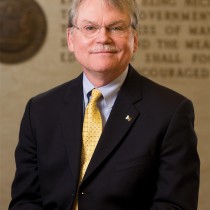Magazine

The Michipedia Project
I’m falling in love with Elizabeth Martha Farrand, but my wife says it’s okay. And therein lies a story that begins with Wikipedia.
In some ways, Wikipedia is like the weather: It seems everyone complains about it, but no one does anything about it. Tell the truth, the last time you had to check a fact, where did you do go?
For historians and archivists, Wikipedia is a combination miracle and menace. It is the largest and most accessible encyclopedia in the history of the world, making information about historical events and personages more available to more people than ever before. They receive 470 million unique visits per month. Miraculously, the content is all written by volunteers, as is the “peer review” of the information presented, mostly by the 76,000 active contributors to the site.
But these same things that make Wikipedia so appealing also cause problems. Subject experts are neither recruited nor involved in the review of Wikipedia content. The inclusiveness and accuracy of the information rests entirely in the hands of the active contributors. But this has led to both questions—who are these writers, why are they writing, and do they know what they are writing about—and controversy about the writers and content, such as a particularly troubling one right now called “gamergate.”
The Bentley Historical Library exists to keep the past alive so that we lose neither the great inspiration it provides nor the great sense of responsibility that it demands. This means from time to time that we need to go “out” to where history is being read—and that includes Wikipedia.
So this past summer, several Bentley staff members, myself included, read standard histories of the University of Michigan, collecting the names of important faculty, staff, and leaders (e.g. elected Regents) who either didn’t have Wikipedia entries, or whose entries could use fleshing out.
We then sorted those names according to two criteria: Each individual had to be deceased (we are writing about the past) and each had to have an archive at the Bentley so that if we were to alter or create a Wikipedia page, we could do it with primary source material.
The result was a list of more than 200 names of important persons in the University’s history. These included founding figures (e.g. John Monteith), famous faculty women (e.g. Margaret Bell), towering figures in 20th-century disciplines (e.g. famed sociologist Robert Cooley Angell), and many more.
This past semester, 14 of us formed a kind of Wikipedia writing community. Nine of the community include wonderful undergraduate students from the course I recently taught, 22 Ways to Think about the History of the University of Michigan, and five of us are Bentley staff members. But we are all learning how to write for Wikipedia together—thanks to help from staff of the Hatcher Library—and sharing and editing our findings together. We will report back as this proceeds. And we hope it will continue. Let’s call it the “Michipedia Project.”
And so, back to Elizabeth M. Farrand. She wrote a history of the University of Michigan published in 1885. She was the assistant librarian at the University Library for 14 years, probably from about 1871-1885. She graduated from the University’s Medical School in 1887 and died as a beloved doctor in Port Huron in 1900.
What an amazing, admirable life she led at a time when each and every one of these accomplishments would have been so difficult for a woman to achieve. She deserves a robust Wikipedia entry, and I’m determined to write it. Of course, I’m struggling with fragmentary sources, but I’m absolutely fascinated by this remarkable person. Perhaps a reader of this column knows more about her?
And this is how the past works on us: fragmentary sources, an admirable life, and many lessons to be learned for both author and reader from a story that deserves to be told.
Terrence J. McDonald
Arthur F. Thurnau Professor
Professor of History and Director
